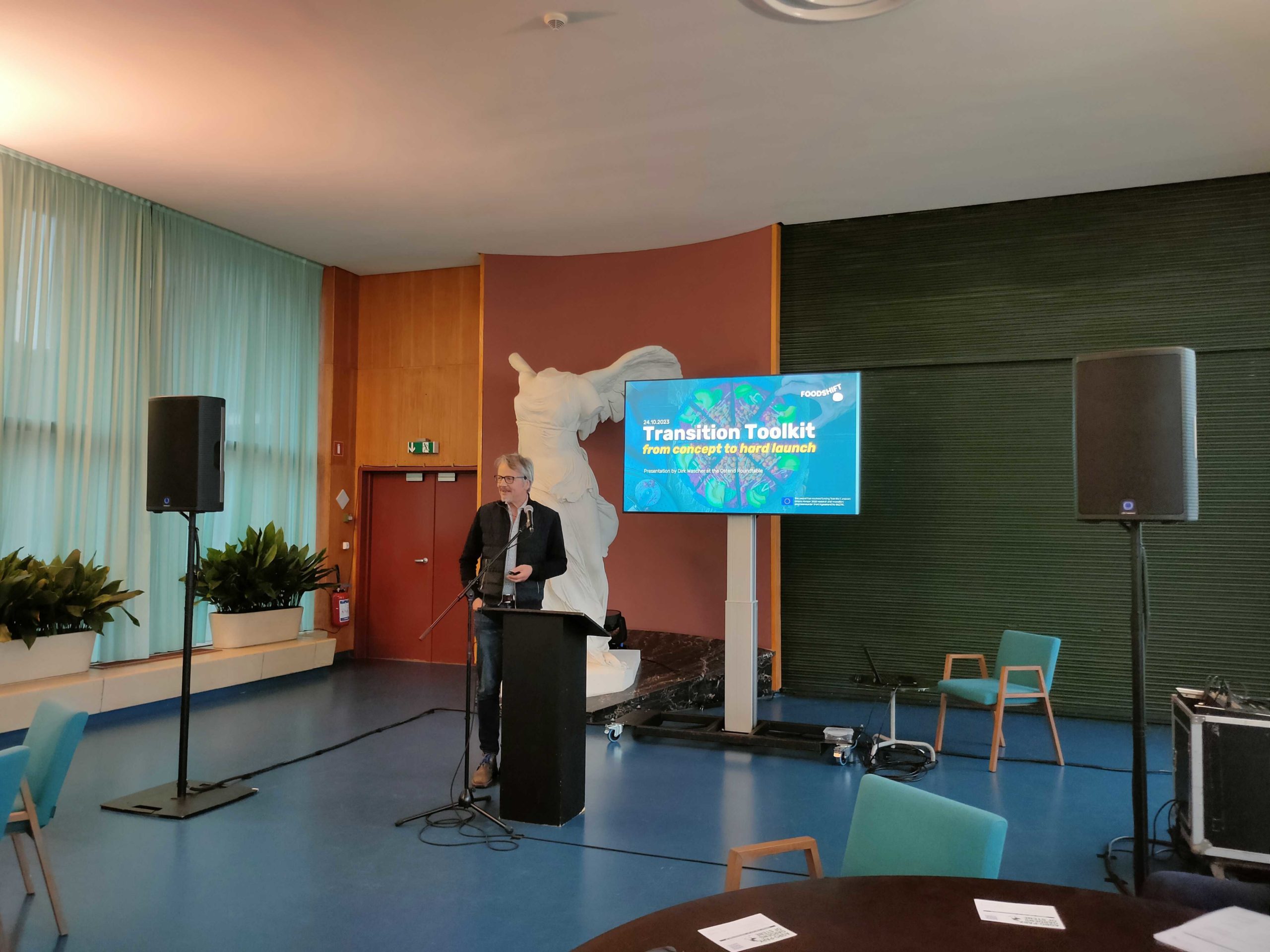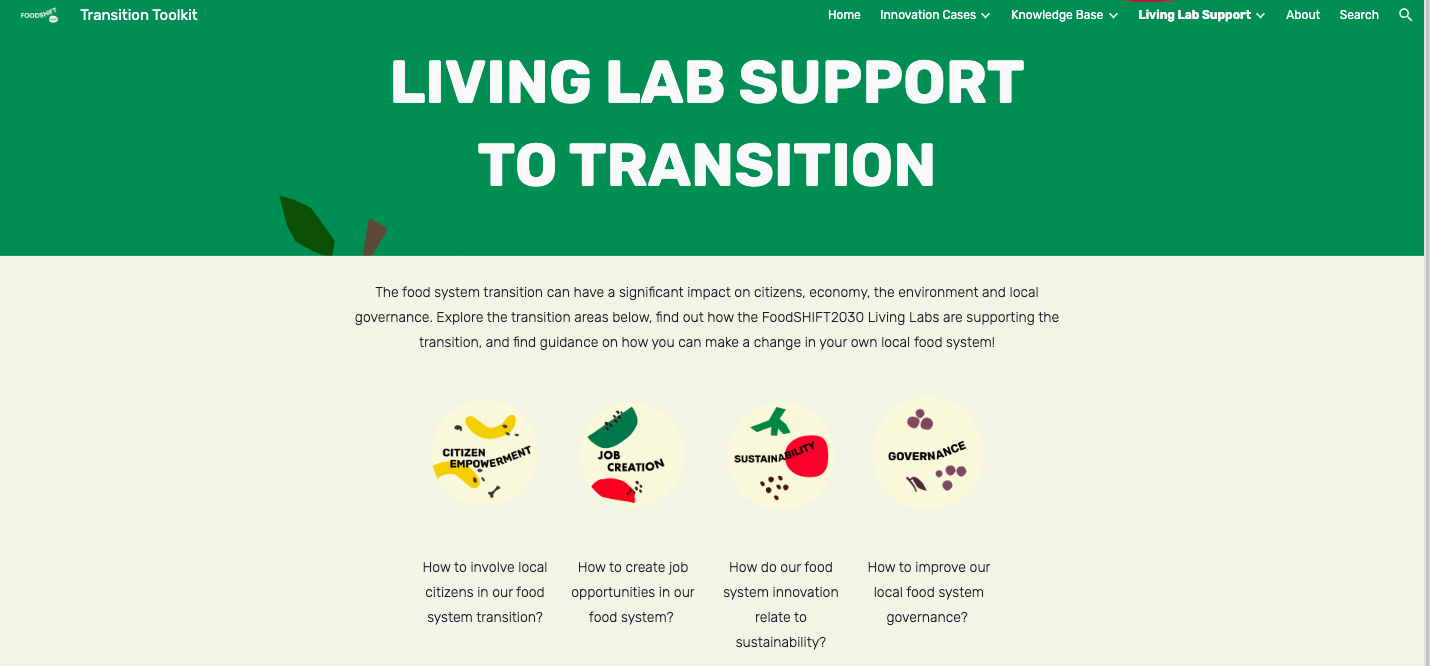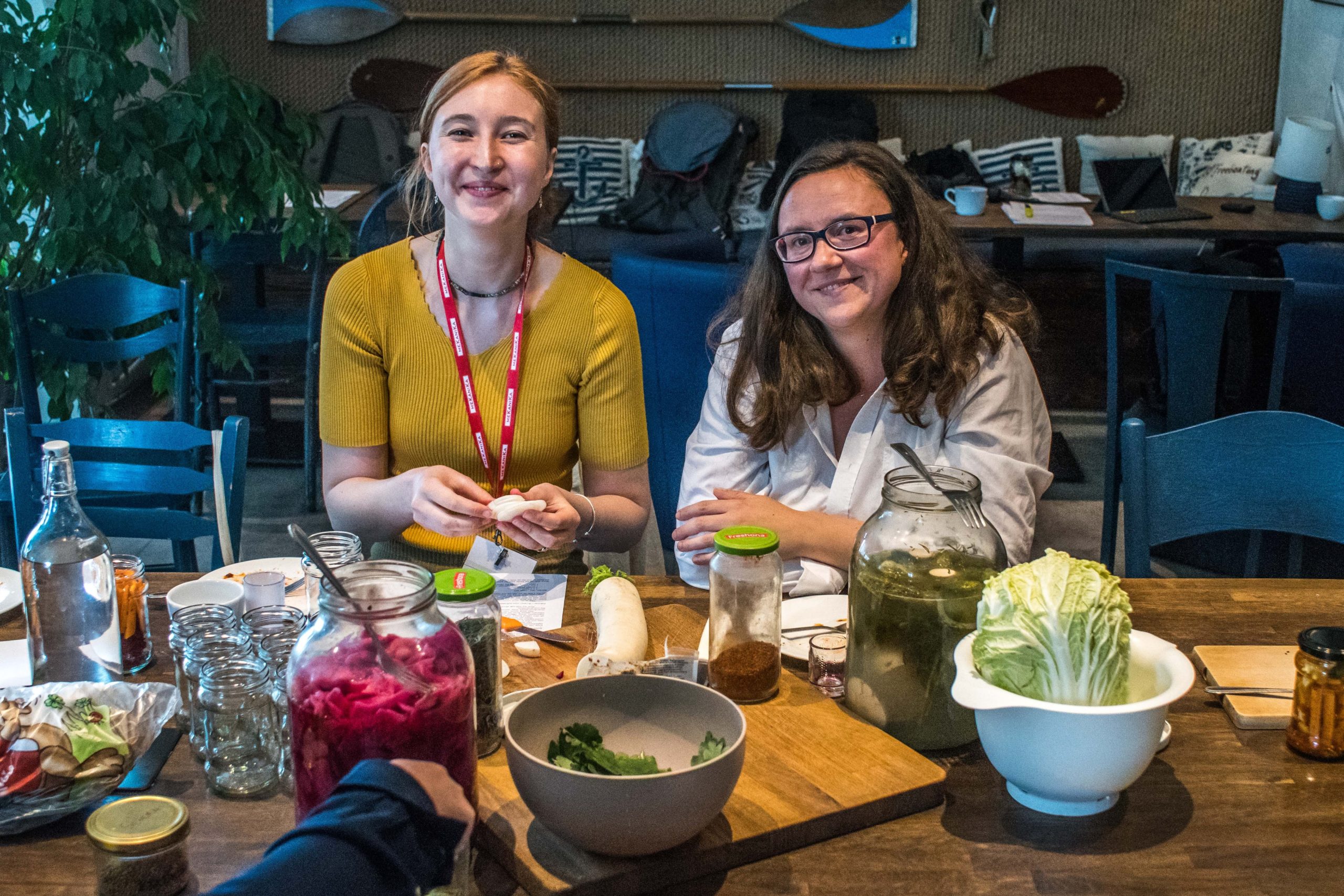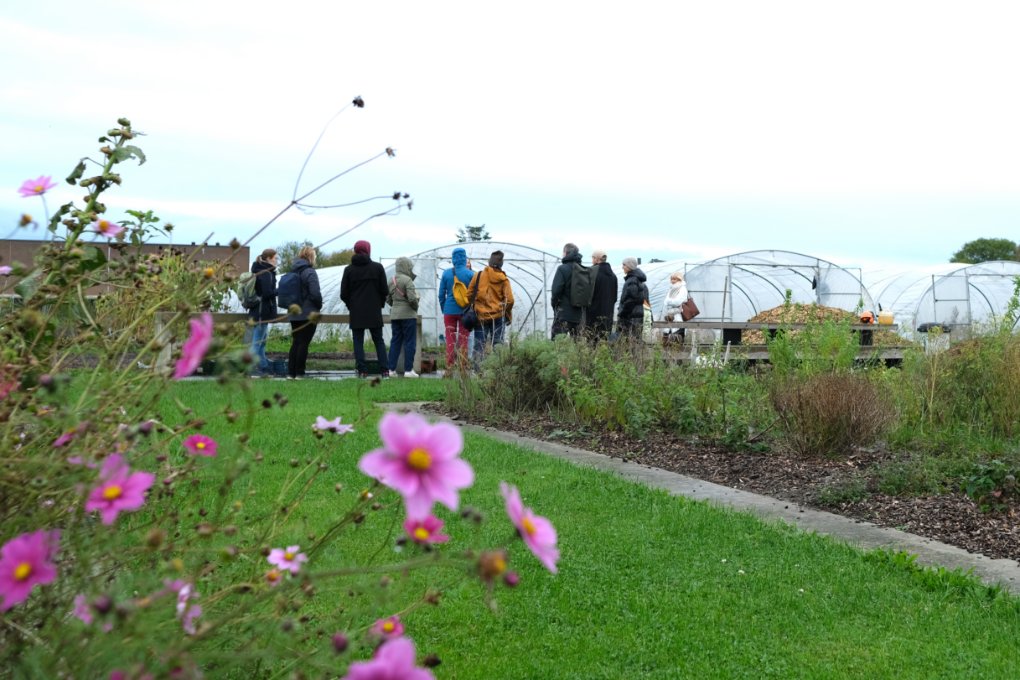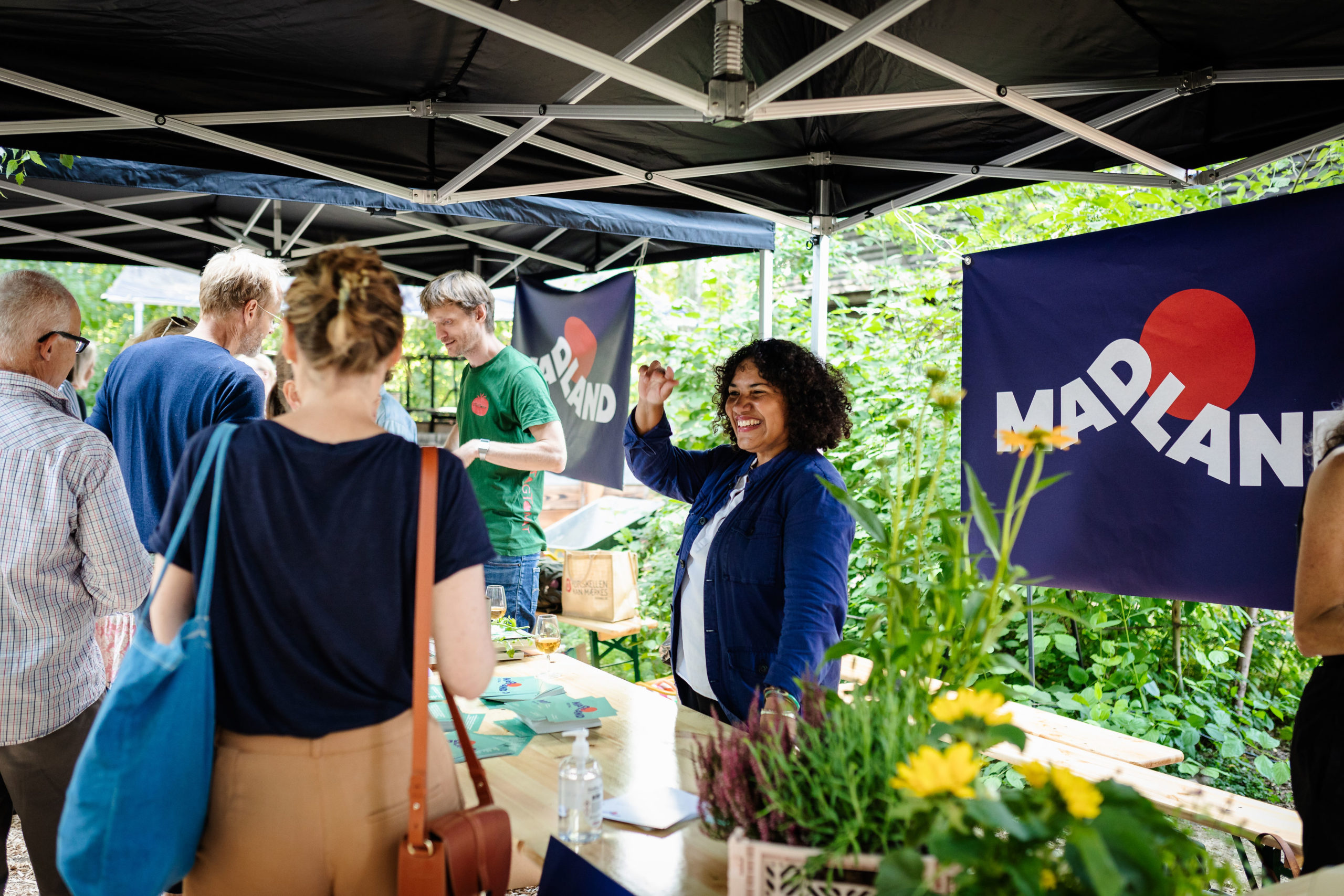Bari’s story: Back to Land Lab
13 December 2023
Four years ago nine city-regions took on the challenge to establish FoodSHIFT Accelerator Labs. In this final blogpost, the Bari Lab reflects on the journey and development made during the whole project, through an interview to the Bari Lab coordinators. Explore the Transition Toolkit to to learn more about the other Lab’s experiences, Bari’s city’s reports on innovation and governance and more.
Key takeaways
- Bari’s focus on food system transition was on the recovery of abandoned land for use in social and technological food system innovation.
- To achieve this however, they needed to start by creating an enabling environment through a food policy and manifesto for the metropolitan city of Bari.
- Achieving this wasn’t easy. Matching the political interests with the innovator’s interests using the land required a lot of back and forth. Besides, innovators showed low trust in yet another project that demanded their time and might not produce outcomes for them. Therefore, it was important to not only meet the needs of the politicians but also of the innovators.
- Some achievements that could be celebrated along the way are that the food policy has been included in one of the axes of the metropolitan strategic plan towards 2030, making food policy one of the top priorities of the Metropolitan City of Bari. Besides, the impact and awareness of the project was much larger with 41 municipalities than most other projects in Italy, focussing only on the urban impact.
- For a city wanting to embark on a similar journey, the recommendation is to try to seek the needs of locals as much as possible. And try to establish some good human relations that can go above professional life.
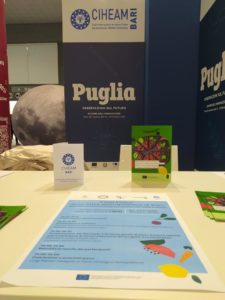
Interview to the Bari Lab coordinators
What was your city’s specific focus in your food system transition and how did you initially start working with this focus area in your city?
Francesca Volpe
Our initial focus was on the recovery of abandoned land, and to capitalise on a parallel project which also focused on abandoned land. But because of some delays, and because of COVID, the two projects, FoodSHIFT and the other project, couldn’t be around in parallel. And this was one reason that obliged us to find another entry point. But the other aspect was that abandoned land couldn’t be recovered without a more systemic approach or decision-making process. Therefore, another focus was to work on the enabling environment.
Lorenzo Labellarte
This is one of the things what we wanted to achieve with the food policy and the manifesto that we created. And the manifesto has been approved and now the food policy is in the process of reviewing to be accepted by the metropolitan city. So, we still don’t have this governance structure, but we proposed one, let’s say. We proposed some way to develop these governance structures.
What were some obstacles or challenges you faced in your food system transition and how did you overcome them (or are planning on overcoming them)?
Lorenzo Labellarte
One of the challenges was that part of our team, the university of Milan, was far away. The geographical distance certainly did not help to build a strong link between us. Especially because we were mainly involved with local activities.
Francesca Volpe
No, it was not so easy. Because first of all, there was also COVID. So, it was difficult to engage people online without establishing direct contact, personal contact. Then it was difficult because there were many drafts of this manifesto which needed to be the closest to the policy expectations. I mean, not to neglect any interests.
Lorenzo Labellarte
So, it has been quite difficult to match the political interests with the innovator’s interests.
Francesca Volpe
Also, because the trust of the innovators was rather low. For them it is like, you know: “Oh, again, another project, but what is in it for us?”
Lorenzo Labellarte
Yeah. Because as Francesca was saying: for some of them it was another project, the level of commitment was “Okay, we give you the things that you want from us …”
Francesca Volpe
I think that when we went to Oostende last May, I think that our human professional success was at its best. Because before innovators were a little bit uncomfortable to provide, to support us with information, be present at workshops. But for instance, the association that recovers food waste, Antonio who came with us to Oostende, was maybe a little bit disappointed that when we visited, we kept in touch with all the innovations in the Oostende ecosystem. He understood how policy commitment was so crucial to achieve all this. So, he understood that we achieved so many things even without a deep commitment from the Metropolitan City of Bari. So, he really appreciated to be part of something that is brilliant in other contexts but could be better also in our city.
If you look back on the last four years, what would you say were your biggest achievements or impacts that you achieved during the project?
Francesca Volpe
One main goal or achievement is that the action plan or the food policy has been included in one of the axes of the metropolitan strategic plan towards 2030. So, food policy is one of the top priorities of the Metropolitan City of Bari. And in October 2023, hopefully, they will approve the action plan. So, they will approve it and they will also try to fund it through regional development funds. But another achievement could be that the metropolitan city of Bari has a group of 41 municipalities. So, it is like a district and the work we did with the metropolitan city of Bari is kind of unique in Italy, because it goes beyond the urban.
Lorenzo Labellarte
Because in Italy, most initiatives of this kind are in the urban area. Here we try to scale up, let’s say, and involve the whole district which comprises 41 municipalities.
Francesca Volpe
Overall, we created stronger links or awareness in the metropolitan city. So, the awareness of an integrated policy which lends on food. And on the other hand, as our institution works mostly at the international level, I mean, at the southern Mediterranean level, with non-EU countries. So, we tried to create an entry point with the Italian Ministry of Foreign Affairs. And now, we are in the middle of discussing key priorities, key priority actions that could be implemented in a local and urban context in southern Mediterranean countries.
Lorenzo Labellarte
Maybe we should also name the connection with Taranto. As a Living Lab, we are now trying to replicate the experiment that we did in Bari, in creating the local food policy, in Taranto. So, we applied the Living Lab approach with three workshops, and the public authorities were involved from the beginning of the process. Now, we are more or less at the same level as in Bari. I mean, now we are developing the document containing the action plan for a potential local food policy in Taranto, and we are waiting for some feedback from their side. Because the idea is to adopt the same process of endorsement of the policy in Taranto.
Francesca Volpe
Overall, we also promote the action plan that follows the manifesto. We tried to scale up the relevance of the process of the metropolitan city of Bari in other networks. So, we linked up with Slow Food at the national level, we linked up with the Italian network for local food policies. We tried to improve the capacity of the institutional body to exchange with other cities or experiences.
Lorenzo Labellarte
We managed to start, to really start the process. To have the topic on the political agenda itself. So, the topic is now there, it is known. Now, there will be a lot of work to do.
What advice do you have for other cities who want to embark on a similar journey?
Lorenzo Labellarte
From my side, I will say, try to seek the needs of locals as much as possible. And try to establish some good human relations that sometimes can go above professional life, let’s say. Because from that kind of relationship, you can have greater impacts also on the ecosystem, since you will engage the same actors also for future funding proposals, for future activities. So, I think these are the two pieces of advice I would give.
Francesca Volpe
I would say, policies matter for each of us. Whatever you buy, there is much more behind it.
Lorenzo Labellarte
As Francesca is saying, everything is connected. Everything is connected.
Contact details
Ciheam Bari
Francesca Volpe – [email protected]
Lorenzo Labellarte – [email protected]
Damiano Petruzzella – [email protected]
Check out previous blogpost of the Bari Lab:
Feeding the future of local food policies across the Mediterranean
